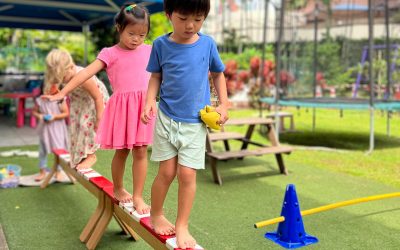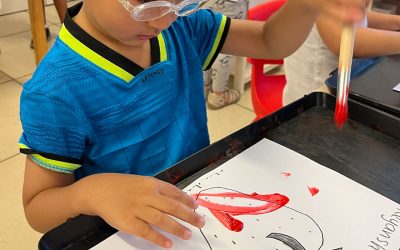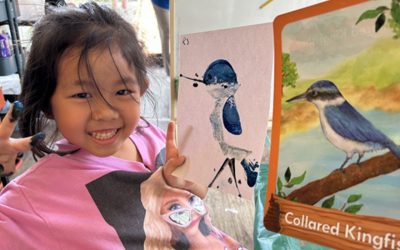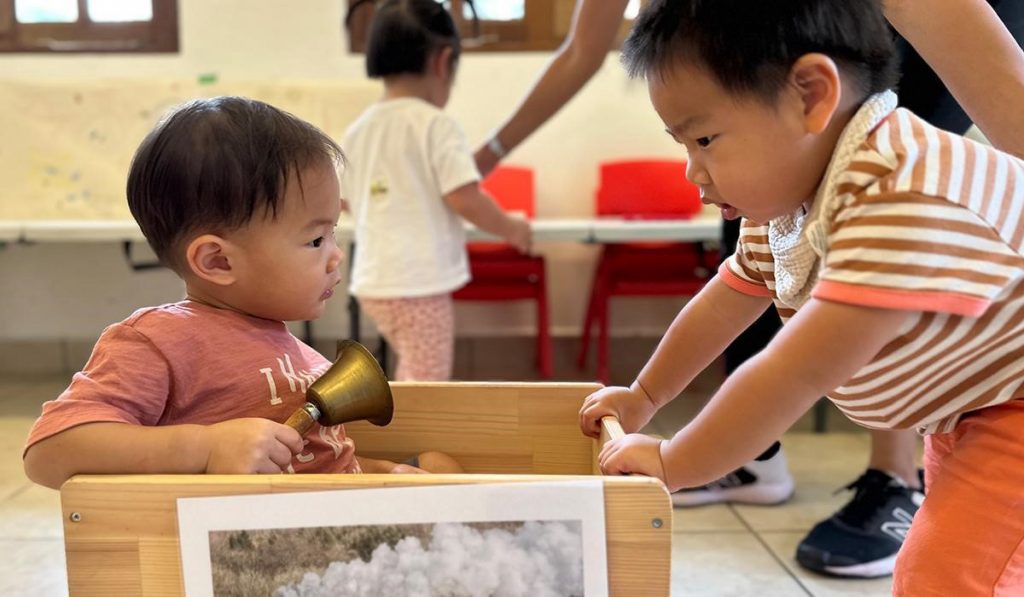
As a parent, you may find yourself worrying that your child is “playing too much” at home or in kindergarten, rather than engaging in structured learning. You’re not alone; many parents share this concern, especially in a world increasingly focused on academic achievement from a young age.
But what if that playtime actually boosts your child’s educational journey?
In this article, we’ll delve into the concept of play-based learning in kindergarten—a pedagogical approach that combines the best of both education and enjoyment.
You’ll learn what play-based learning is, the philosophy behind it, its numerous benefits, as well as the challenges that it may present. We’ll also provide concrete examples of play-based learning in action, and explore how Heartfield Kindergarten weaves play into its curriculum to offer a holistic learning experience.
What is Play-Based Learning?
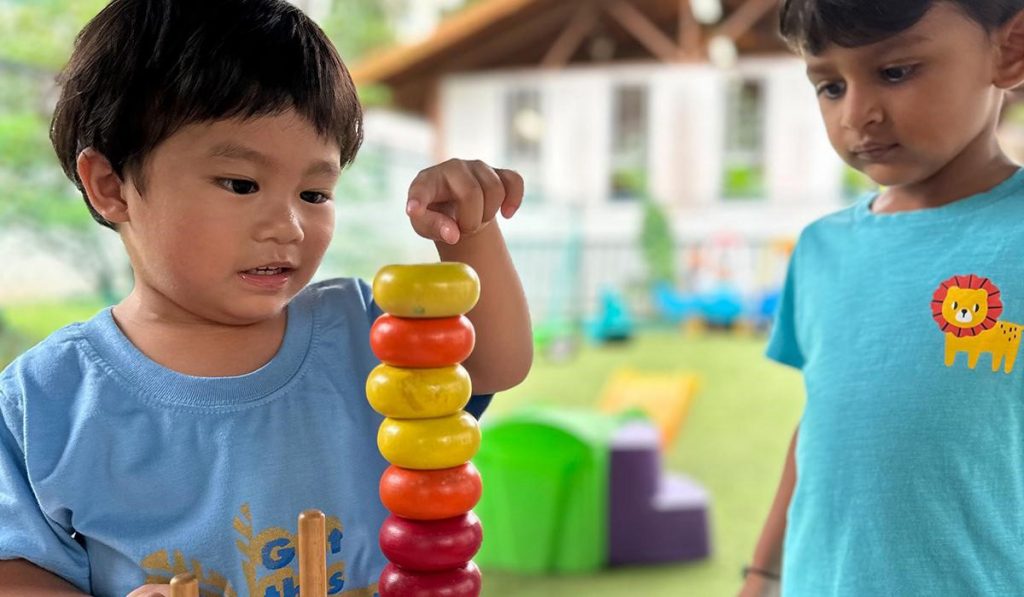
So what exactly is play-based learning, and why is it important for parents and educators to embrace this concept?
Imagine your child building a tower with blocks. While it may seem like simple fun, this activity is actually a complex learning process. Your child is not only grasping basic engineering and maths concepts, but also honing their fine motor skills.
In short, play-based learning is to learn while at play. It certainly isn’t just child’s play, but a scientifically-backed educational approach that is well-studied by early childhood specialists around the world.
Play-based learning can take many forms. They may include imaginative play, role-playing, free play and structured games. The approach is often contrasted with traditional, more formal methods of education, which rely heavily on rote memorisation and structured activities.
It is important to note that play-based learning is most effective when it is guided by educators who can provide some structure and context to the play activities. This ensures that the learning objectives are met without stifling the child’s natural curiosity and enthusiasm.
The Philosophy of Play-Based Learning
Play-based learning is deeply rooted in the belief that children are naturally curious. They are eager to explore the world around them and are natural explorers, scientists and researchers.
Indeed, according to UNICEF, play “is one of the most important ways in which young children gain essential knowledge and skills.” While children do not consciously think about what they’ll learn through play, it creates powerful learning possibilities across all areas of development.
Anybody who has observed cute baby animals in action would’ve noticed too that play is not exclusive to humans. It’s a universal phenomenon observed in various animal species, from monkeys and dogs to rats and even octopuses. This widespread occurrence suggests that play naturally serves a functional purpose.
In early childhood education, the play-based approach centres on child-led learning, with the child taking the lead in role creation and activity selection. While the child is the main actor, the teacher’s role is crucial for guiding the learning experience. The educator engages with the child as a facilitator to deepen understanding and encourage higher-level thinking.
Unlike traditional educational models which prioritise measurable results and structured syllabuses, play-based learning focuses more on the process rather than the outcome. In a play-based setting, children are encouraged to take risks, solve problems, and engage in creative thinking.
Benefits of Play-Based Learning
Do you know that play actually helps your kids to be more brainy? Neuroscientists have discovered that play not only triggers the prefrontal cortex of the brain responsible for higher order functions—it stimulates the production of a protein responsible for growing new brain cells!
Along with their brain development, play-based learning helps strengthen the following areas in preschool-aged children:
- Cognitive Development: Play helps children to develop problem-solving skills, logical reasoning, and critical thinking, particularly when there is a specific goal (eg build the tallest brick tower) to be achieved.
- Social Skills: Children learn to share, collaborate, and negotiate with peers, fostering teamwork and empathy when they play with each other.
- Emotional Intelligence: Through play, children learn to manage and regulate their emotions. Beyond controlling their temper, play can further develop their resilience while helping them to gain self-confidence.
- Language Skills: Play (particularly role play) often involves verbal communication, which enhances vocabulary, sentence structure, and conversational skills.
- Creativity: Open-ended play encourages imagination, allowing children to think outside the box and be innovative. When kids play, they are free to let their minds wander (and wonder).
- Fine Motor Skills: Activities like kicking a ball, drawing, cutting, or building with blocks improve a young child’s hand-eye coordination and dexterity.
- Physical Development: Active play, particular sports, helps in the development of gross motor skills, balance, and spatial awareness.
- Independence: Play-based learning encourages autonomy as children make choices, take risks, and learn from their mistakes.
- Deepens Curiosity: The freedom to explore in a play-based setting nurtures a child’s natural curiosity and love for learning.
- Improves Academic Readiness: While not the primary focus, play-based learning can introduce basic academic concepts in a fun and engaging manner, preparing children for more structured learning in the future.
Challenges of Play-Based Learning
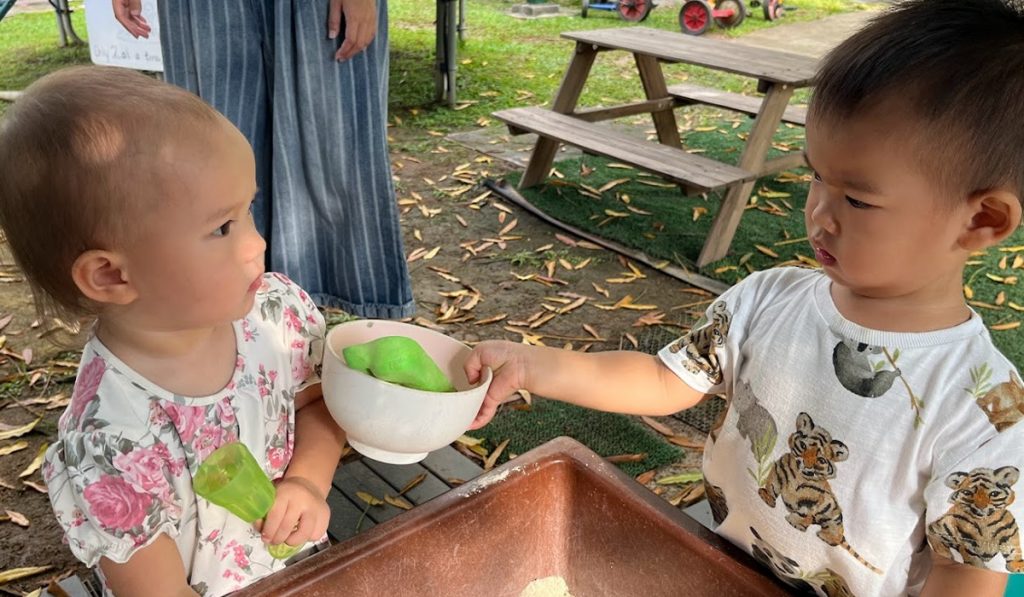
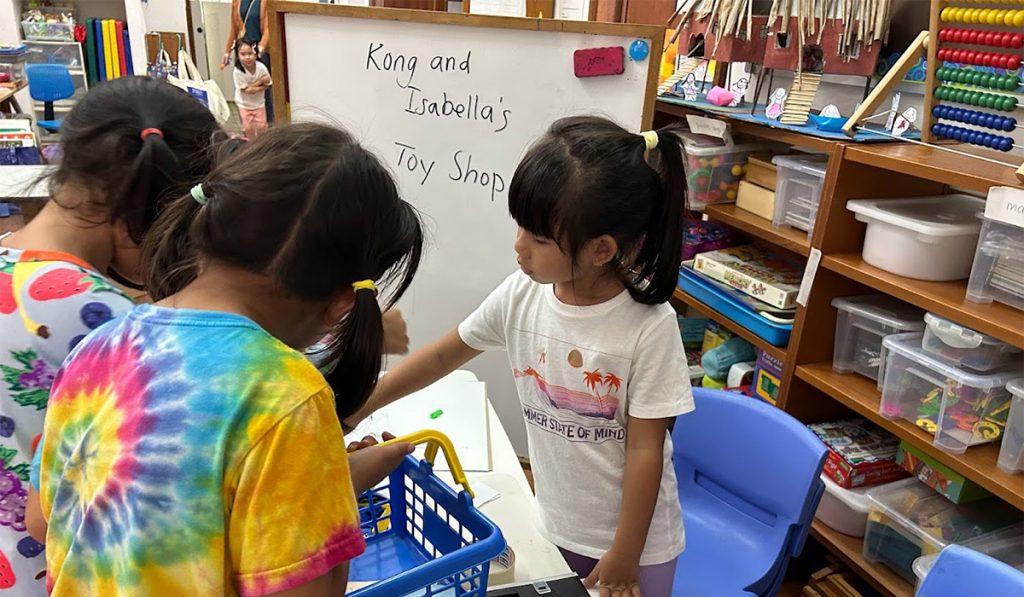
Given the positives associated with play-based learning, shouldn’t parents and educators allow their children to play freely—whenever and wherever they like?
While play-based learning offers numerous advantages, we need to be aware of the challenges that it may present, both in school and at home.
- Resource Intensive: Unlike rote-based learning, play-based learning often requires more staff to facilitate learning. It may also require a wider variety of learning materials beyond pen, pencil and paper.
- Assessment Difficulties: Traditional methods of evaluation may not be applicable, making it more difficult to evaluate a child’s learning and developmental progress.
- Parental Scepticism: Some parents may question the educational value of play, preferring more structured, academic approaches.
- Inconsistent Engagement: Educators need to be mindful of the fact that not all kids are equally boisterous or participative. Shy and introverted children, for instance, may prefer to stay in the background, leading to varying levels of participation and learning.
- Time-Consuming: Planning and setting up play-based activities can be time-intensive for educators.
- Safety Concerns: The exploratory nature of play may raise concerns about the physical safety of children in a preschool environment.
- Skills Gap: For play-based learning to be effective, educators require additional training to effectively facilitate and guide play-based learning.
- Lack of Structure: Too much freedom can sometimes lead to chaos, making it difficult to achieve specific learning objectives.
- Cultural Barriers: Play-based learning may not align with the educational expectations of all cultural backgrounds.
How Heartfield Kindergarten Weaves Play into Learning
At Heartfield Kindergarten, academic learning is far from mundane; it’s an exhilarating adventure steeped in play-based learning. Our theme-based curriculum serves as a launchpad for year-round exploration and discovery.
Each and every one of our educators are schooled in the philosophy of learning through play. We weave play into our learning activities in a holistic manner, ensuring that education is both enriching and enjoyable.
Occupying a charming heritage/colonial bungalow blessed with a sprawling compound, learning is woven into play through a variety of activities that engage our children’s senses and imaginations. Some examples include:
- Outdoor Play & Exploration: Children learn about the environment and how to care for it by playing in the herb garden, banana grove, and other outdoor spaces.
- Discovery Stations: Multisensory Discovery Stations allow children to develop language skills, mathematical concepts, aesthetic appreciation, and scientific inquiry skills through hands-on play-based activities.
- Weaving Play into Lessons: To enliven the learning experience, we weave in experiential play-based learning into each of our lessons. They include academic subjects like maths, science and languages, to sports, art, music, drama, games, cooking, and others.
With smaller classes and student-to-teacher ratio, our children are given plenty of individual attention—especially the quieter and more introverted ones. Our educators are always present, not just as instructors but as facilitators, encouraging peer interaction and collaborative learning.
To learn more about Heartfield Kindergarten’s play-based approach to learning, get in touch with us at tel: +65 6835 2354, email: info@HeartfieldKindergarten.com or drop us a line at our contact page.
